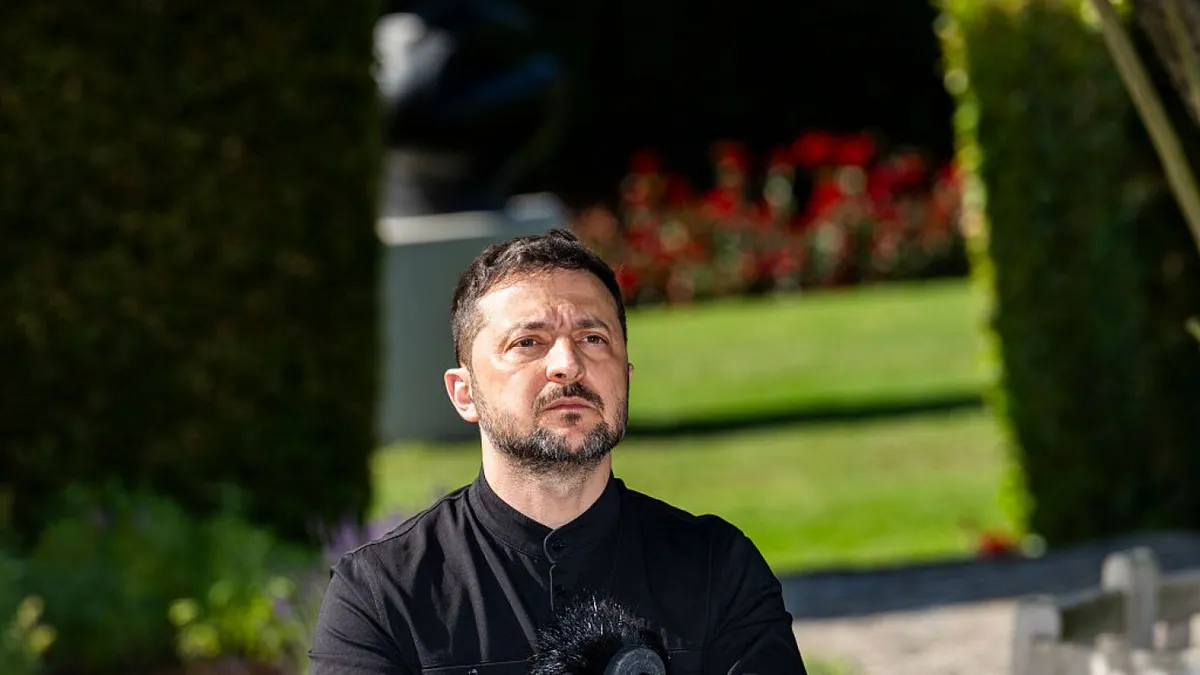
On Saturday, Ukrainian President Volodymyr Zelenskyy expressed his unwavering stance regarding the ongoing conflict with Russia, stating that Ukraine has no intentions of relinquishing any of its territories currently occupied by Russian forces. In a powerful video message shared across various social media platforms, including X, Zelenskyy emphasized, “Ukrainians will not gift their land to the occupier.” He further reiterated that Ukraine will not reward Russia for its actions during this brutal war.
Zelenskyy's comments come in the wake of a significant announcement from former President Donald Trump, who revealed plans for a summit with Russian President Vladimir Putin in Alaska next Friday. Trump is advocating for an end to the ongoing conflict and has suggested that Ukraine might have to make concessions regarding some of the territories captured by Russia. He described the situation as “very complicated” but expressed optimism about regaining some territory, mentioning the possibility of a “swapping” arrangement that could benefit both nations.
In light of these developments, Kremlin advisor Yuri Ushakov remarked that the leaders of the U.S. and Russia would aim to find a long-term resolution to the war. Historically, Russia has put forth multiple demands, including control over Ukrainian regions, restrictions on the future size of Ukraine's military, and assurances that Ukraine will not join NATO. However, Zelenskyy firmly stated that Ukraine is not participating in the upcoming summit, asserting that no viable decisions regarding the conflict can be made without Ukraine's involvement.
For years, Zelenskyy and other Ukrainian leaders have maintained that their ultimate goal is to reclaim all territories occupied by Russia. Since the initial invasion in 2014 and the full-scale military offensive in 2022, the situation has remained largely stagnant, with frontlines showing minimal changes. Despite Russia's superior numbers and firepower, the country has achieved only incremental advances at a significant cost, while Ukraine continues to hold predominantly defensive positions.
Currently, Russian forces control approximately 20% of Ukraine's territory, particularly in the eastern and southern regions of the nation. This territorial incursion has added layers of complexity to the ongoing diplomatic discussions and military strategies employed by both sides.
The upcoming Trump-Putin summit is taking place against a backdrop of a strained relationship between the two leaders in recent months. Trump initially entered office with promises to swiftly resolve the conflict, indicating that his connections with Putin could facilitate a peace agreement. However, as Russia has intensified its military operations against Ukraine, Trump's approach has evolved. He has recently threatened to implement tougher sanctions against Russia and imposed additional tariffs on India, a major purchaser of Russian oil.
Ukrainians remain deeply skeptical about Putin's intentions, believing that the Russian leader engages in negotiations merely to create the illusion of seeking peace. Many fear that these discussions are a tactic to buy time while continuing military aggression against Ukraine. This pervasive skepticism underscores the complexities and challenges that lie ahead in achieving a resolution to the ongoing war.